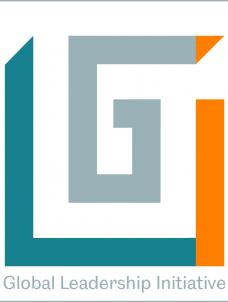The Dream of a Technology for Social Good – Or Rather a Nightmare?

Technology in the global entrepreneurial world, is it an inhibitor or a prohibitor? Syeda and Dominik explore this critical question which was raised and discussed at the Global Entrepreneurship Congress (GEC) 2019.
There is no doubt in how rapidly technology and data have transformed the world we live in today. At the GEC 2019 in Bahrain, there has been a recurrent focus on new technologies like Artificial Intelligence (AI) and 3D printing and the global impact it is having on society.
Advancing with the technological trends in today's digital economy has become a necessity. Technology is shaping the future in many ways and businesses and technology cannot be separated. Whether it’s a high-tech business or a non-tech business, effective application of technology is becoming crucial. This is the case not just for bigger organisations but also for SMEs and Startups. It is interesting to look at how technology can help certain entrepreneurs in certain countries and economies in different ways. For example, using mobile banking facilities in countries with a higher smartphone penetration like Pakistan and Bangladesh.
 At the GEC 2019 in Bahrain, Laura Leun, a consultant at the Global Shapers Frankfurt Hub, stated that “AI is not the secret we have been waiting for so long. It has always been there. It is just a new term for machine learning.” While AI has many benefits like accuracy and efficiency, it does raise a few concerns amongst people such as potential job losses with mass implementation of AI. To address this concern, Lathika Pai, who is Country Head at India’s Microsoft for Startups, argued that AI is meant to augment jobs and facilitate decision-making, not replace them. She further added that job losses are inevitable but AI’s implementation also opens potential job opportunities for workers with certain skill sets.
At the GEC 2019 in Bahrain, Laura Leun, a consultant at the Global Shapers Frankfurt Hub, stated that “AI is not the secret we have been waiting for so long. It has always been there. It is just a new term for machine learning.” While AI has many benefits like accuracy and efficiency, it does raise a few concerns amongst people such as potential job losses with mass implementation of AI. To address this concern, Lathika Pai, who is Country Head at India’s Microsoft for Startups, argued that AI is meant to augment jobs and facilitate decision-making, not replace them. She further added that job losses are inevitable but AI’s implementation also opens potential job opportunities for workers with certain skill sets.
In general, the major challenge is to learn how to shape and adapt technologies in the most efficient way while keeping disadvantages to a minimum. Furthermore, it needs to be considered if countries are ready for the use of new technologies. Entrepreneurs mostly focus on the solution, not the problem. However, whilst the solution can constantly change, the problem is fixed according to Hera Barrameda. In the Philippines, for example, a lot of people tried to disrupt banking by bringing e-payment solutions. However, in a country where 98% don’t have a credit card and 70% don’t have a bank account, it was not until Cash On Delivery was integrated in e-commerce payment options that sales in online marketplaces spiked in the Philippines. Therefore, there is no need for online banking or smart banking apps on the market. This is the same in African countries, where the people just want to have clean and working sanitation and public infrastructure rather than services like cloud computing. Indeed, this issue cannot be solved by technology alone.
From AI scanners for African farmers to self-driving cars, there are endless possibilities for the introduction of next generation technologies. But there is an unknown side to the effects of their integration into different economic and social contexts, which raises questions about ethical issues, regulatory issues, and many others. As the serial social entrepreneur Javad Mushtaq said at the GEC 2019: ‘Sometimes we are running a bit too fast to really understand the consequences of technologies. We need to learn more about the ethical aspect and the negative sides of technology by building a suitable framework and legislation.’ If this is not addressed properly, the wonderful dream of empowering technology can end in a nightmare.
Dominik Brauchart is an MSc International student at the University of Sheffield. Syeda Zahra is a final year Undergraduate student of Business Management at The University of Sheffield. They are both policy analysts at the GEC 2019. This post is part of a series from the Global Leadership Initiative's team of eight students at the Global Entrepreneurship Congress 2019 in Bahrain from 15th to 18th April. To read there rest of the team's outputs, please see here.
Image credit: Rob Brewer via Flickr (CC BY-SA 2.0)


